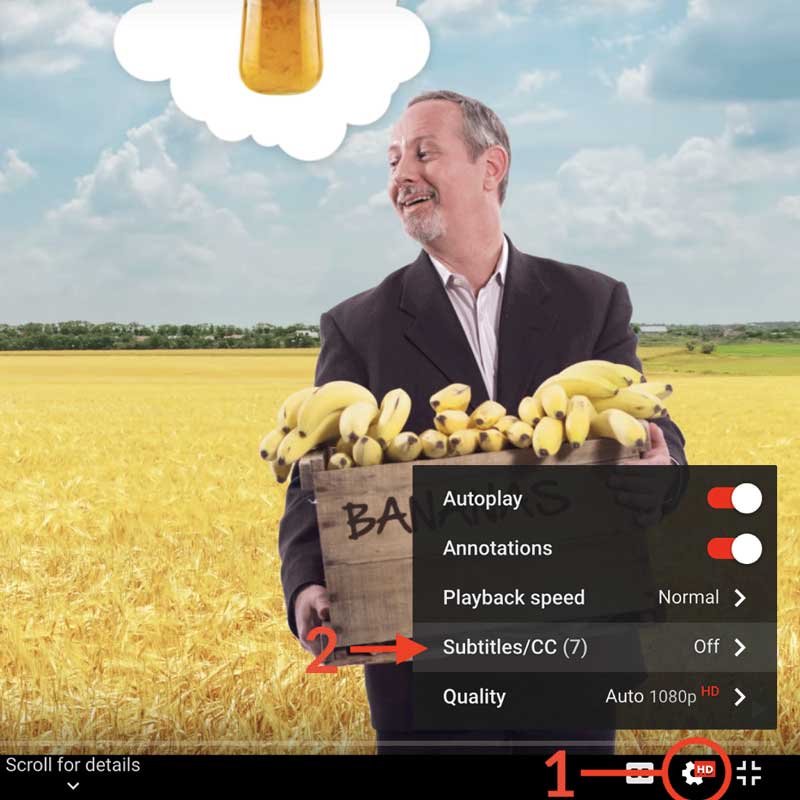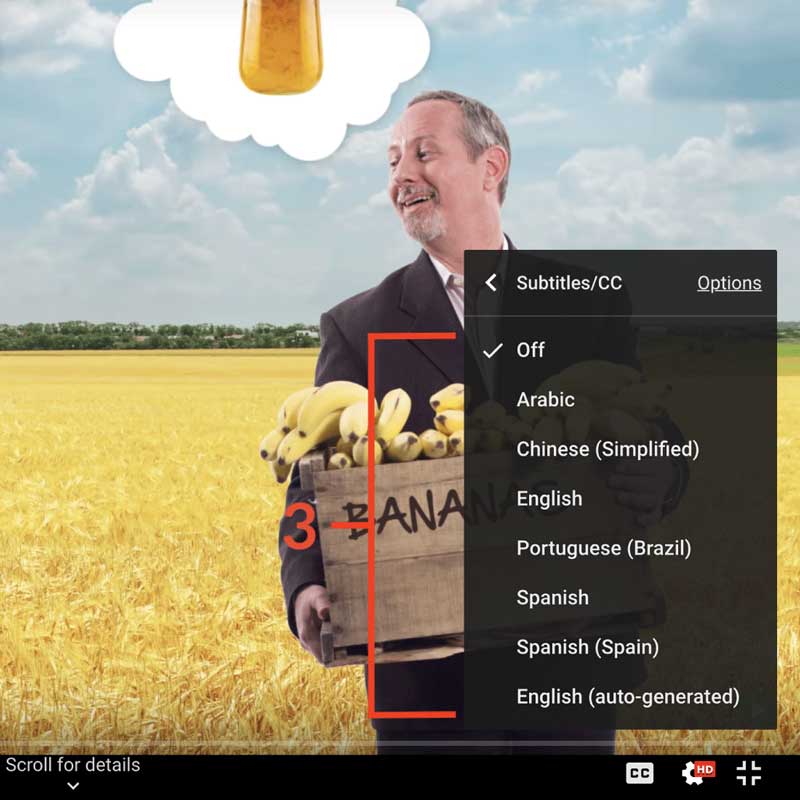The Great Reset
Course Outline
The Great Reset
Economic progress is not continual and inevitable. It can be disrupted with short downturns and, as we’ve seen in this series, periods of stasis. If we continue on this trajectory, there is the possibility of a “great reset” and there are some strong indicators that it’s already underway.
Let’s think of these indicators as “canaries in the coal mine.” Miners used to take canaries with them to provide an alarm when levels of toxic gases were too high. The birds were much more susceptible to the gases and would show signs of distress – or even die – before the miners were in grave danger.
During the Great Recession, subprime borrowers acted as the canaries. Poor credit and lower incomes made them the most susceptible to trouble in the larger financial system, and they showed signs of distress first – missed payments and foreclosures. The whole system was cracking up, but we saw it here first.
Where are the possible canaries today? The Ferguson and Baltimore riots suggest stress on America’s race relations and inner cities. Millions of men of prime working age are missing from the U.S. labor force. And what about the 2016 election? Trump’s political rise indicated serious discontent among millions of American voters, but elite political commentators, up until the very end, did not see Donald Trump becoming president.
If we look at these events as connecting the dots between stresses on the American economy, we can see some commonalities – namely, a loss of trust. People are losing trust in American institutions. Wage growth is sluggish, people are experiencing more socioeconomic segregation, and politics have us increasingly divided.
What happens if the U.S. faces a crisis? Can we respond to huge job loss from unforeseen automation? What about a foreign policy crisis, or infrastructure collapse? The American economy, with its current loss of dynamism and innovation, would have trouble responding to any sudden crisis. The federal government, with so much revenue already tied-up, would as well.
If we stay on the course of complacency, a great reset is very possible and it won’t be pleasant. But it’s not all doom and gloom. In the longer run, such a crisis could reinvigorate the American pioneer spirit, putting the U.S. back on a path of economic dynamism and growth.
Teacher Resources
Transcript
When I was younger, I used to think that American social, economic, and political progress they were virtually automatic. But as the years pass and I see more history, I've started to wonder. I now think that cyclical theories of history may instead apply.
In a cyclical theory, good times, in fact, contain the seeds of their own destruction. They tend to breed problems. And over time, the good times are followed by something rather worse. In particular, I'm worried about the possibility of what is called "The Great Reset." A Great Reset comes about when people try to postpone change in a system, but eventually, the pressures for change are so strong, and so fundamental, that they get a bigger change yet.
But what are some particular reasons for thinking why a Great Reset might be underway? Well, I think of this all in term of canaries in the coal mine. Maybe you've heard that phrase: "canary in a coal mine." And you might wonder, why are we talking about canaries and coal mines? Well, coal miners used to take canaries with them underground. If the mine shaft had dangerous amounts of gases, such as methane or carbon dioxide, the canaries would show distress or die before the people would. The canaries were more susceptible, and so they provided a valuable warning signal when something was wrong. So when I look at today's world, I wonder what are the canaries in the coal mine?
What are the weakest parts of the system, and they're failing, but it's not just a localized failure, it's giving us a broader and deeper warning, of bigger stressors on the entire system. So, for an example, take America's Great Recession, starting in 2007/2008. What was the canary there? Sub-prime borrowers. Now, those were the borrowers who had the weakest finances, often the lowest credit scores and lower incomes. So when the housing bubble burst, and the downturn started, those were the people who were most susceptible. And, indeed, they were the first to show signs of stress - late mortgage payments, and eventually, a lot of foreclosures, people losing their homes. That was terrible. But keep in mind, at that time, it was the entire financial system that was under stress. The sub-prime borrowers were just the canaries. That's where the problem came first, but it showed that underlying that individual problem, something deeper and more structural was wrong in many other parts of the financial system. So what canaries might we possibly be seeing today? Well, consider the riots in Ferguson and Baltimore. That, to me, is suggesting something is wrong in some of America's inner cities, and something is wrong with race relations. But, again, I would encourage you not to think of this as just a localized problem. Those may be canaries suggesting there's something more fundamental going on with many lower income Americans somehow not being content enough, not getting enough out of the system. We also find that there are millions of American men of prime working age, going missing from the economy, and in many cases, not even looking for jobs, because they don't like the opportunities that are available.
Again, is that a localized problem? Yes. But it might also be a symptom of deeper stress. If you look at the recent election of President Trump, no matter what you think of Trump, I think of that, too, as a canary in the coal mine. Very few of the elite commentators in any way predicted the rise of Trump as a candidate or that he would win the election. That's sign that there are forms of discontent out there that elites were missing. And so many voters opting for Trump, probably there are other forms of discontent that are going to surface later on. So these are not all just random events, but something ties them together. That is, there are more general stressors on the system. And if I have to think of one particular way of describing a lot of those stressors, I would say it's about trust. People are losing trust in a lot of American institutions. They are losing trust in economic growth, they are losing trust in American politicians. And, indeed, our politics seems to be working poorly, and our economy is in a partial stasis, and living standards are growing only slowly. We see many forms of segregation on the rise, and I mean segregation in terms of income, education and class. It's like we're giving rise to two very different Americas. And there's a general sense that something isn't working with the status quo.
So what might be some possibilities or scenarios for a Great Reset? Imagine, for instance, that the American economy were to be hit by a sudden wave of increased automation. Do we have the flexibility to respond and employ, re-employ, larger numbers of people? Maybe not. Or, imagine that we lose so much of the flexibility with the budget of our federal government, because we promise and over-promise that money so many times, and a foreign policy crisis comes along, and we don't have the ability to respond properly. Or imagine parts of our infrastructure stop working, because we don't maintain them properly, or they're attacked, or maybe the open Internet turns out to be too vulnerable, due to hacking, and phishing, and stealing, and fraud online.
So, can we avoid a Great Reset in our future? Well, it's at least possible. If we could make the American economy and American society more dynamic, more innovative, less segregated, that could relieve a lot of the key pressure points on America today. But I'm not entirely sure that that can happen quickly enough to solve all of our problems. Indeed, the very fact that we already see all these canaries, suggests that we're just not willing to make those changes or maybe we would have already.
So there's another scenario. And that scenario is that some kind of Great Reset comes, and it shocks us. It disillusions us. But the bright side is, it may bring back the American pioneer spirit. We'll learn that we absolutely have to make some changes, some necessary changes, in order to move forward at all. We'll see it's not possible anymore to simply postpone change, deny its necessity, and put it off. So, in the short run, am I worried? Yes. Absolutely. In the longer run, am I optimistic about the United States? Yes, for the most part, especially on good days.
You've just watched the final episode in Tyler Cowen's Everyday Economics series on American Culture and Innovation. You can see the previous episodes by clicking to see the entire playlist. At Marginal Revolution University we are on a mission to provide a world-class economics education to everyone, everywhere, for free. Here are some of our other popular videos.
Subtitles
- English
- Spanish
- Chinese
Thanks to our awesome community of subtitle contributors, individual videos in this course might have additional languages. More info below on how to see which languages are available (and how to contribute more!).
How to turn on captions and select a language:
- Click the settings icon (⚙) at the bottom of the video screen.
- Click Subtitles/CC.
- Select a language.


Contribute Translations!
Join the team and help us provide world-class economics education to everyone, everywhere for free! You can also reach out to us at [email protected] for more info.
Submit subtitles
Accessibility
We aim to make our content accessible to users around the world with varying needs and circumstances.
Currently we provide:
- A website built to the W3C Web Accessibility standards
- Subtitles and transcripts for our most popular content
- Video files for download
Are we missing something? Please let us know at [email protected]
Creative Commons

This work is licensed under a Creative Commons Attribution-NoDerivatives 4.0 International License.
The third party material as seen in this video is subject to third party copyright and is used here pursuant
to the fair use doctrine as stipulated in Section 107 of the Copyright Act. We grant no rights and make no
warranties with regard to the third party material depicted in the video and your use of this video may
require additional clearances and licenses. We advise consulting with clearance counsel before relying
on the fair use doctrine.


